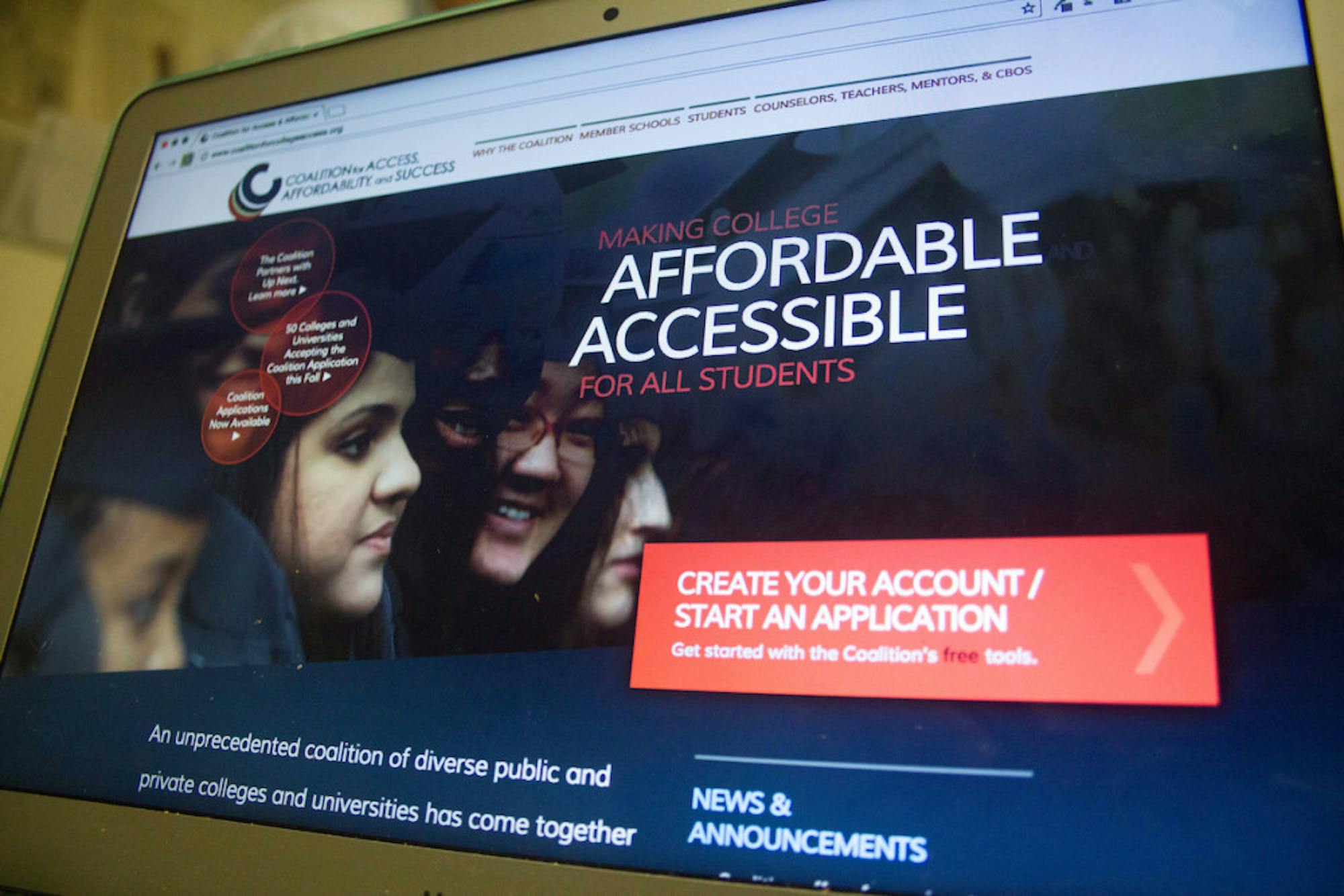Starting with the upcoming admissions cycle for the Class of 2021, Tufts will be accepting the Coalition for Access, Affordability and Success application, in addition to the QuestBridge application and traditional Common Application.
Susan Ardizzoni, director of undergraduate admissions, explained how the impetus for the new application platform came about when the Common Application was facing a lot of technical issues.
"[The Common App] went through a lot of technical issues to the point that colleges weren't sure if applications would arrive on time and according to deadlines," she said. "Although it all worked out, a group of colleges started discussing how it was risky to have only one admission platform. So that was what started it."
The new application, known as the Coalition, launched in Aug. 2016, equips students with an alternate platform and is aimed at providing affordability, accessibility and success for college students, according to the application's website.
Over time, the focus of the new application shifted from just addressing technological issues to issues of affordability and access, according to Ardizzoni. According to Admissions Counselor Sean Ashburn, the way the Coalition addresses the issue of affordability is that all member institutions have a baseline commitment established toward providing financial aid or affordable tuition. Students can thus use the Coalition as a research tool to help them make an informed decision about the colleges that are financially suitable for them.
According to Ardizzoni, the Coalition currently has over 90 member schools. These include private universities and colleges that are committed to meeting 100 percent of demonstrated financial need of every domestic student as well as public universities that have high graduation rates and are committed to giving affordable in-state tuition, Ardizzoni said.
The Coalition has several unique features that distinguish it from the Common Application, according to Ashburn. One of them is known as the "locker," which allows students to compile and store documents such as essays and other work done over the course of high school to access later when applying to college, he explained.
Ardizzoni describes this distinctive feature as an electronic file cabinet.
"It can be described as the cardboard box above the dryer that you keep all your children’s stuff in," she said.
Adrizzoni went on to explain that a student in the ninth grade with an interest in photography or creative writing can save his or her work over time in the locker and by the 12th grade demonstrate the progress of their skills.
Ashburn also highlighted the collaborative aspect of the Coalition which, similar to Google Docs, allows students to share essays and other files with mentors, teachers and counselors working with them during the application process. They, in turn, can leave notes and feedback in the same location, according to Ashburn.
“It provides an option to coach students on how they can improve the quality of their work," Ashburn said.
Ashburn explained that on the Common App there are, by default, two spaces to fill in under parents’ names. The Coalition, however, asks how many parents the student would like to list, he said.
“For a student with a family with less than two parents or no relation with more than one adult, the Coalition affirms that the student’s life does not have fit into the model of the application, but rather the student’s life drives the application," Ashburn said.
After years of just one application platform, many students raised the question as to how admission officers will compare students applying through the Coalition and Common Application, Ashburn explained.
According to Ashburn, the Office of Undergraduate Admissions believes equally in the quality of both and does not deem either one to be more significant than the other. It is more about which application fits best for each student, he explained.
Ashburn gave the example of high-achieving, low-income students looking at Tufts and other peer institutions, who can benefit from using the Coalition.
“It serves as a resource to target and zero in on schools that are good academic fits, social fits and financial fits for them," said Ashburn.
Due to its recent launch, Tufts Admissions does not expect thousands of Coalition applications this year, Ardizzoni said. Ardizzoni explained that in the future, Tufts and other member institutions plan to travel to underprivileged high schools to talk about the Coalition and advocate for its usage.
According to Ashburn, Tufts was one of the leading members at conferences promoting the Coalition because the application reflects the university's own values.
Tufts to acccept Coalition Application starting with Class of 2021






